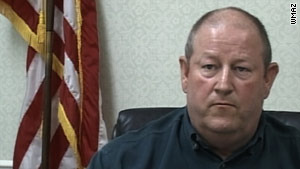Baggy Saggy Pants now Illegal in Dublin, Georgia
 Tuesday, September 7, 2010 at 2:59AM
Tuesday, September 7, 2010 at 2:59AM 
http://articles.cnn.com/2010-09-05/justice/georgia.baggy.pants.law_1_baggy-pants-dublin-residents-indecent-exposure?_s=PM:CRIME http://articles.cnn.com/2010-09-05/justice/georgia.baggy.pants.law_1_baggy-pants-dublin-residents-indecent-exposure?_s=PM:CRIME
Should wearing baggy pants be made illegal? Yes! According to the mayor of Dublin, Georgia, Phil Best and presumably many of its residents, it is now a crime punishable by up to 200 dollars in fines.
The amendment to the municipality's indecent exposure ordinance prohibits the wearing of pants or skirts "more than three inches below the top of the hips exposing the skin or undergarments." Patrolling for offenders will be left to local police in the town about 140 miles southeast of Atlanta. Violators could face fines ranging from $25 to $200, or court-mandated community service.
"That's not our intent, we'd (rather) not fine anybody but we are prepared to," Best said.
The mayor said after about a year of fielding complaints, he put the city attorney to work researching how other localities have dealt with the derriere dilemma. The result was that council members decided to put exposure due to baggy clothing in the same category as masturbation, fornication and urination in public places.
Personally i think it's a trend that has captured the youth of today. It is for all practical purposes a fashion statement, a way for young people to express themselves among themselves.
However, many people especially older people find it offensive to display your underwear in public. Many schools have banned this dress style but it is prevalent on the streets of any town in America. It transcends race and economic status.
It may be offensive to some people but is it illegal? Are laws against public indecency to be decided by local ordinances or is there a national standard for indecency?
Is it a generational thing or is there something more sinister to it? Is it a way for young people to rebel against society? Are our morals under attack?
These are some of the questions that lawmakers and parents as well have to consider. Parents especially have to ask themselves is it okay for my child to dress like this? In the end however, the way one dresses is their own business. I find it hard to equate showing underwear with "masturbation, fornication and urination in public places" as laid out in the Dublin ordinance.
It may be offensive to some people but if no "private parts" are exposed how can it be considered "indecent"? Is there a basic difference between a bra and panties and a bikini? At the beach a bikini is completely acceptable attire. What if someone wore that same bikini and walked down the middle of main street, would that be considered indecent exposure? Or if someone stripped down to bra and panties at the pool, would that be considered indecent exposure?
I think there needs to be a distinction between "indecent" and "inappropriate". When schools and businesses set a dress code policy, they are well within in their rights to do so. When government tells people how they should dress in public, they are, in my opinion, trampling on people's right to free speech, protected by the Constitution. Just because you don't like how I dress does not give you the right to legislate away my right to dress as I see fit.
It may not be appropriate in some people's mind to expose your underwear but there is no indecency in doing that. I consider the KKK an inappropriate organization to join but it is protected under the Constitution.
Riviera Beach, Florida passed a ban against sagging pants in recent years, but the legislation was later declared unconstitutional after a court challenge. It remains to be seen if this ordinance in Dublin, Georgia gets challenged in court, but if it does, it will be the case to watch.
 Dublin Georgia,
Dublin Georgia,  baggy pants,
baggy pants,  indecent exposure in
indecent exposure in  Courts,
Courts,  Crime,
Crime,  Law,
Law,  News,
News,  Our World
Our World 





